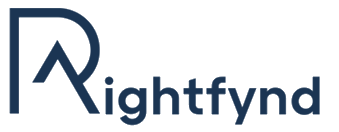In today’s rapidly evolving job market, staying ahead of talent trends is essential for both employers and candidates. At RightFynd, we’re constantly monitoring the shifting landscape to help our clients make informed decisions about their hiring strategies and talent acquisition approaches. As we look toward 2025, several key trends are emerging that will shape how organizations attract, retain, and develop their workforce.
The Changing Talent Landscape
Remote and Hybrid Work Models Continue to Evolve
The pandemic-accelerated shift to remote work has now settled into more nuanced and sophisticated hybrid arrangements. Organizations that maintain flexibility in their work models will have a significant advantage in attracting top talent. According to recent studies, companies offering remote or hybrid options report:
- Access to 40% larger talent pools
- Higher retention rates (up to 25% improvement)
- Increased productivity when employees have autonomy over their work environment
The key for employers is developing thoughtful, intentional hybrid policies rather than reverting to pre-pandemic norms or taking a one-size-fits-all approach.
Skills-Based Hiring Takes Priority
As technological advancement continues to accelerate, formal education and traditional career paths are becoming less relevant than specific skill sets. We’re seeing a marked shift toward:
- Hiring based on demonstrated abilities rather than degrees or years of experience
- Increasing focus on both technical and soft skills assessment during the hiring process
- Growing investment in upskilling and reskilling current employees
This trend is particularly evident in technical roles, where rapidly evolving technologies can make even recent degrees outdated. Forward-thinking organizations are developing sophisticated skills assessment tools that provide more accurate predictions of job performance than resumes alone.
AI’s Expanding Role in Recruitment
Artificial intelligence is transforming recruitment processes, but not in the way many initially feared. Rather than replacing human recruiters, AI is augmenting their capabilities through:
- More sophisticated candidate matching algorithms
- Automated initial screening that reduces bias
- Predictive analytics that improve hiring outcomes
This technology allows recruiters to focus their time on the human elements of hiring: building relationships, assessing cultural fit, and creating positive candidate experiences.
The Growing Importance of Employer Brand
In a competitive talent market, a strong employer brand is becoming as important as consumer branding. Companies that clearly articulate their values, culture, and employee value proposition are seeing:
- 50% more qualified applicants
- 28% reduction in turnover
- 50% lower cost-per-hire
Authenticity is key—candidates are increasingly skilled at identifying disconnect between stated values and actual workplace practices.
Strategic Approaches for Employers
Invest in Workforce Analytics
Data-driven decision making is no longer optional for effective talent management. Organizations should:
- Implement robust workforce analytics to track key metrics around hiring, performance, and retention
- Use predictive modeling to anticipate future skill needs and potential talent gaps
- Develop dashboards that provide real-time insights into talent trends specific to your industry
These tools allow companies to move from reactive to proactive talent strategies, identifying and addressing issues before they become critical problems.
Prioritize Upskilling and Continuous Learning
With the half-life of skills continuing to shrink, creating a culture of continuous learning is essential. Leading organizations are:
- Developing comprehensive learning and development programs aligned with business strategy
- Creating clear pathways for internal mobility
- Investing in technologies that enable personalized learning journeys
These investments not only prepare your workforce for future challenges but also serve as powerful retention tools in a competitive market.
Redefine Compensation Strategies
Traditional salary structures are giving way to more dynamic and holistic approaches to compensation. Forward-thinking organizations are:
- Implementing more frequent compensation reviews to respond to market changes
- Creating more transparent pay practices that build trust
- Developing total rewards approaches that include flexibility, development opportunities, and other non-monetary benefits
These strategies recognize that different employees value different aspects of compensation and allow for more personalized approaches.
Build Inclusive Organizations
Diversity, equity, and inclusion initiatives are evolving from compliance requirements to strategic imperatives. Companies with mature DE&I approaches are:
- Moving beyond representation metrics to focus on inclusion and belonging
- Implementing specific strategies to support underrepresented groups
- Measuring the impact of inclusion on business outcomes
These efforts not only expand talent pools but create environments where diverse perspectives drive innovation and performance.
Preparing Your Organization for Success
Conduct a Talent Trend Audit
Begin by assessing your organization’s current position relative to these emerging trends:
- How does your remote/hybrid policy compare to industry standards?
- Is your hiring process primarily credential-based or skills-based?
- How effectively are you leveraging technology in recruitment?
- What’s the current state of your employer brand?
This baseline assessment helps identify the most critical areas for improvement.
Develop a Talent Innovation Roadmap
Based on your audit, create a prioritized plan for talent strategy innovation:
- Identify quick wins that can be implemented immediately
- Outline larger initiatives requiring more significant investment
- Create clear metrics to measure progress and impact
Ensure this roadmap aligns with broader business strategy and has executive sponsorship.
Foster Cross-Functional Collaboration
Effective talent strategy requires input from across the organization:
- Involve line managers who understand day-to-day skill requirements
- Partner with IT to leverage technology effectively
- Engage marketing in employer branding initiatives
- Include finance in developing innovative compensation approaches
This collaborative approach ensures talent strategies meet the diverse needs of the organization.
Conclusion
The talent landscape of 2025 will reward organizations that take a proactive, strategic approach to talent acquisition and management. By understanding emerging trends and implementing innovative practices, companies can position themselves to attract and retain the talent they need to thrive in an increasingly competitive environment.
At RightFynd, we partner with organizations to navigate these complex trends, developing customized approaches that align with business objectives and organizational culture. As the talent landscape continues to evolve, the most successful organizations will be those that view talent strategy as a core driver of business success, worthy of the same focus and investment as product development or market expansion.

